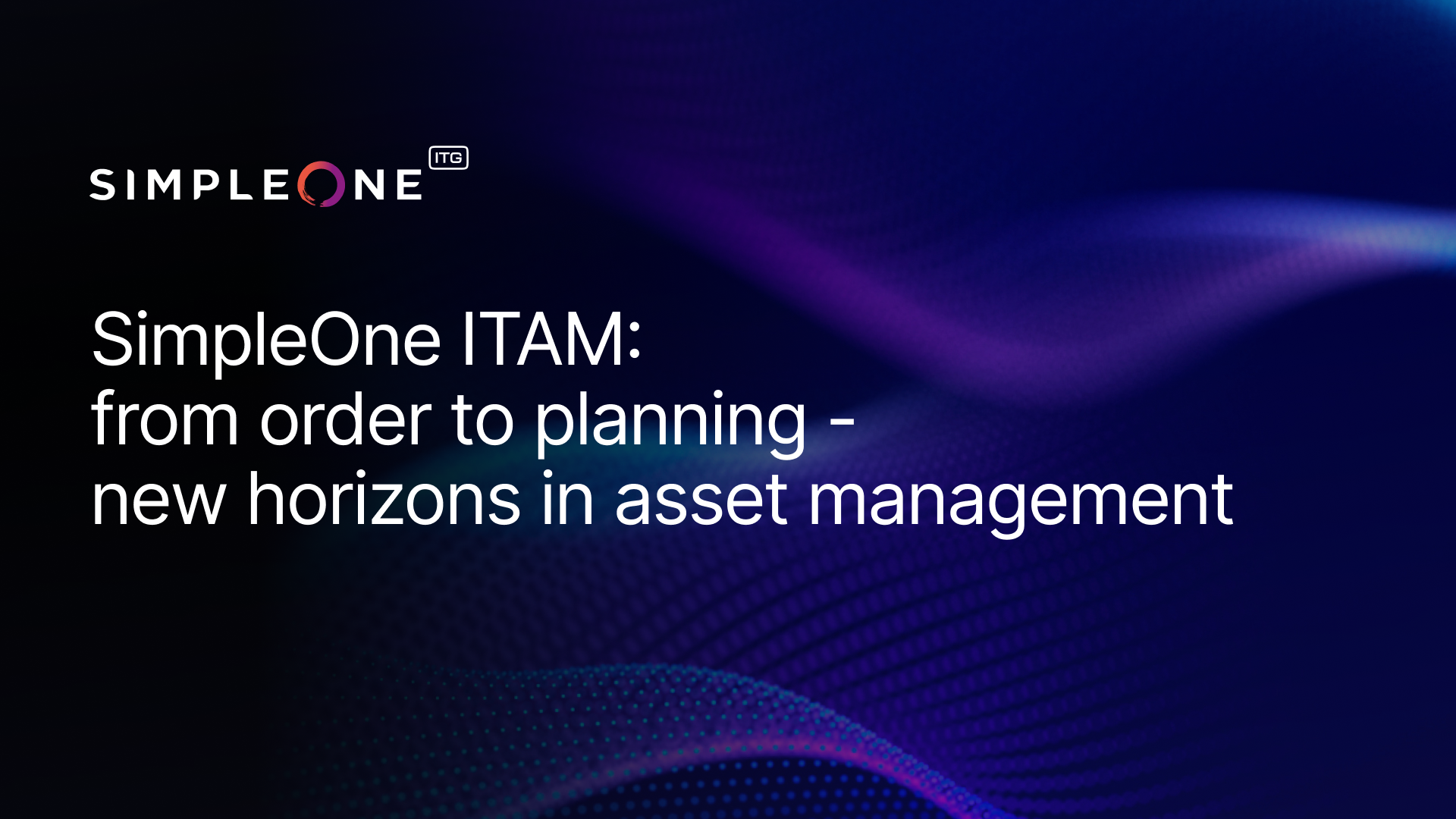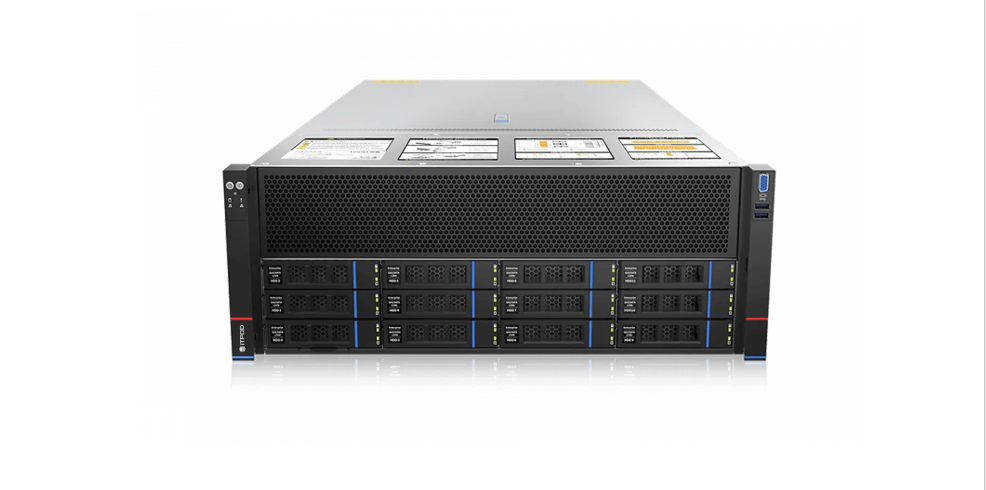SimpleOne ITAM: a strategic asset for your organization
Imagine that you need to assess the current number of IT equipment in use, identify its users, and check the warranty period. Or calculate what equipment a new office will need in six months and plan for timely procurement. SimpleOne ITAM transforms these tasks from a headache into simple operations, helping companies manage their assets throughout their lifecycle.
What is IT asset management (ITAM)?
IT Asset Management (ITAM) is a comprehensive approach to managing all of an organization's technological resources used to support business operations. It includes a methodology, tools, and processes for maximizing the value of IT assets throughout their lifecycle — from procurement planning to disposal.
ITAM covers two types of assets:
Hardware asset management (HAM)
Servers, workstations, peripheral devices, and network equipment.
Software asset management (SAM)
Software, licenses, and cloud services.
With ITAM, organizations can:
unify asset reference books and classifiers;
account for and identify assets, track inventory data, and manage contractual obligations;
monitor assets throughout their entire lifecycle.
The main goal of ITAM is to improve IT resource efficiency, reduce risks, and maximize ROI on infrastructure investments.
Within ITIL practices, ITAM is closely connected to change management, incident management, service level management, and configuration management. ITAM data supports these processes and improves overall service quality.
Why is ITAM important for business?
Properly implemented IT asset management not only optimizes daily operations but also builds a foundation for strategic IT planning.
Full lifecycle IT asset management
The asset management system consolidates information such as costs, contracts, and work history. This allows specialists to obtain real-time insights and track each asset from request to disposal.
IT cost control and optimization
ITAM provides visibility into asset usage. Companies can identify cost-saving opportunities, eliminate redundant licenses, and redistribute unused equipment.
Process optimization and transparency
Automation reduces routine administrative tasks, freeing employees to focus on strategic initiatives.
Approval workflows accelerate decision-making, while centralized asset data reduces the risk of loss and inefficient usage.
Implementing ITAM strengthens both operational management and long-term IT infrastructure planning.
ITAM and ITSM: a comprehensive IT management approach
ITSM (IT Service Management) and ITAM are complementary disciplines.
ITSM organizes IT service delivery and user interaction.
ITAM manages the company’s technical and financial IT resources.
ITSM covers:
service request processing;
incident and problem management;
change management;
service level control.
ITAM focuses on:
hardware and software accounting;
cost allocation and financial tracking;
procurement planning;
contract management.
Together, ITSM and ITAM create a unified framework for efficient IT resource management aligned with business needs.
Data exchange between ITSM and ITAM
Combining ITSM and ITAM data provides a complete overview of the IT environment. In SimpleOne, configuration items can be linked directly to ITAM asset records, ensuring seamless information exchange.
Incident and change data are automatically reflected in asset histories, improving transparency and control.
Process integration and efficiency improvement
Integrating ITSM and ITAM enhances incident, request, and change management processes.
Employee onboarding or offboarding automatically triggers asset updates, warehouse changes, and inventory adjustments.
This integration enables organizations to:
standardize IT resource management;
optimize IT costs;
increase infrastructure transparency;
reduce contractual risks;
maximize asset utilization.
SimpleOne integrates ITSM and ITAM within a single platform, enabling two-way data synchronization between systems.
Understanding ITAM processes
A comprehensive ITAM system includes strategic, tactical, and operational levels of asset accounting.
Strategic level
budgeting and financial planning;
asset demand forecasting;
cost allocation and financial modeling (TCO, ROI);
approval and consolidation processes.
Tactical level
inventory reservation;
procurement management;
supplier selection and contract administration.
Operational level
storage and usage tracking;
asset movement and modernization;
repair, decommissioning, and disposal.
These processes cover the full asset lifecycle — from planning to financial reporting — enabling informed infrastructure development decisions.
Features and functionality of SimpleOne ITAM
SimpleOne ITAM is a comprehensive IT asset management solution built on the low-code SimpleOne platform.
It follows global best practices and ITIL standards, providing businesses with powerful lifecycle asset management tools.
Core components
AMDB (Asset Management Database)
integrated with CMDB for centralized data storage;
pre-configured processes for planning, accounting, and contract management;
inventory and warehouse management tools;
role-based access control;
management of organizational structure, users, and locations.
Platform capabilities
Mobile version (PWA)
Automatically adapts to mobile devices without occupying device memory.
Low-code / No-code customization
Enables flexible process customization without deep programming expertise.
System Integration
Supports integration via Excel, JSON imports, and API connections.
User-friendly Interface
Intuitive UI, open documentation, and training materials ensure fast onboarding.
SimpleOne ITAM delivers flexibility, security, automation, and cost optimization throughout the entire asset lifecycle.
Conclusion: modern IT asset management for digital transformation
Digital transformation requires modern, centralized IT asset management systems. Spreadsheets and legacy accounting methods are no longer sufficient.
SimpleOne ITAM transforms asset data into actionable insights, automates routine processes, and provides a strategic foundation for IT infrastructure planning.
By combining ITSM and ITAM capabilities on a single platform, SimpleOne enables organizations to create transparent asset management processes and maximize the value of their technology investments.






